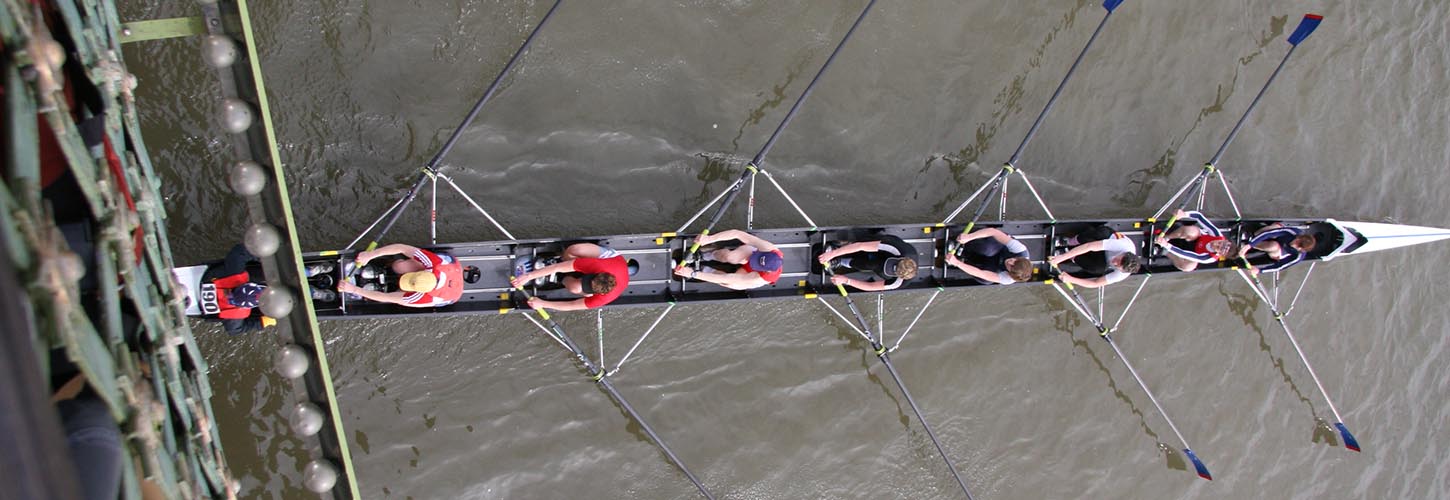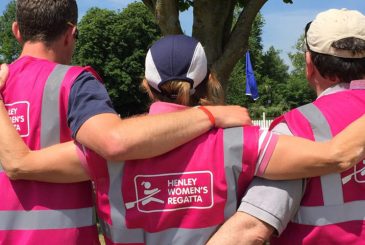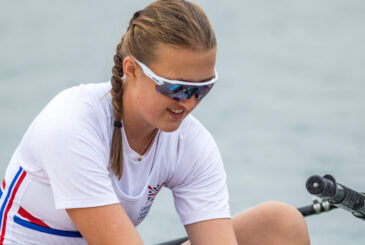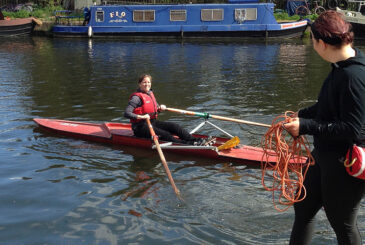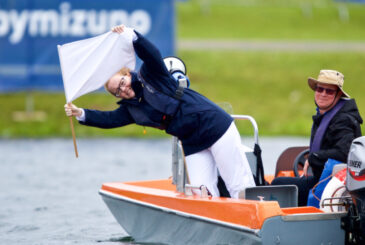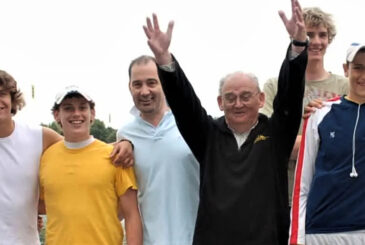Thousands of rowers flock to the major Head of the River races on the Tideway every year – but what’s it like to process and organise all of that as an Entries Secretary? Lara Matthams speaks to the two women responsible for enabling crews to line up and head off under Chiswick Bridge.
The men’s (HORR) and women’s (WEHORR) Head of the River Races, traditionally staged a couple of weeks apart in early March, are arguably the two most important heads in the UK season, certainly for eights.
The commitment involved in preparing for them by the rowers, coxes and their coaches is well documented – hours in the gym, and even more hours on the water – but very little is written about the men and women who work tirelessly behind the scenes to organise these major sporting events. To gain a little insight into the enormous task these volunteers face, I spoke with entries secretaries Lesley Baguley of WEHORR and Bryony Gough of HORR.
Phase 1: Set up for success
Months before clubs are even thinking about selecting their crews for these races, there is a flurry of activity to set the foundation for a successful event. Entries secretaries support the race at every turn, from first committee meeting to the wash-up discussions afterwards. “You have to be a very methodical and process-driven person” explains Bryony.
The annual cycle for the (voluntary) entries secretaries begins at the committee meeting where the formation of the event is determined; the structure, who it will be open to, and the various categories and trophies available. With this plan, the event secretaries then set up the online entries system, BROE2, to reflect the decisions made. Any mistakes made at this point would cause considerable problems once entries open. The digitalisation of race entries has made the job of entries secretary much, much easier, but they need to be IT literate as they usually still need to do a fair amount of wrangling spreadsheets.
Details really matter at this stage – it’s essential that all of the information on the race website matches with what’s in BROE2, for example. But this is very much the calm before the storm; there are always enquiries to be answered, particularly from overseas clubs, but at least the volume is relatively small at this stage.
Phase 2: All systems go!
After the entries go live, there’s usually an initial flurry of submissions (clubs anxious to secure their slot) followed by more crews coming in dribs and drabs during the successive weeks. Alongside the entries come a mountain of emails, querying categories and logistics, all of which the entries secretary is responsible for navigating and solving.
They’re also responsible for scrutinising all the entries to make sure they’re entered in the correct event and that visiting crews have arranged boating locations (where their numbers will be delivered) and for chasing up any uncertainties. “We sort of have to intuit what isn’t necessarily obvious,” said Lesley. “It’s important to be able to spot patterns and irregularities so you’re able to make a judgement”.
After entries close, the entries secretaries begin to process the entries and line up the start order, an activity that takes two to three days. “We have to be very careful in co-ordinating with the umpires on race committee,” said Bryony. “The next challenge is to manage withdrawals and substitutions. This was a major problem last year with COVID-19. People were falling ill at the last minute, at ten-fold the rate of regular years”.
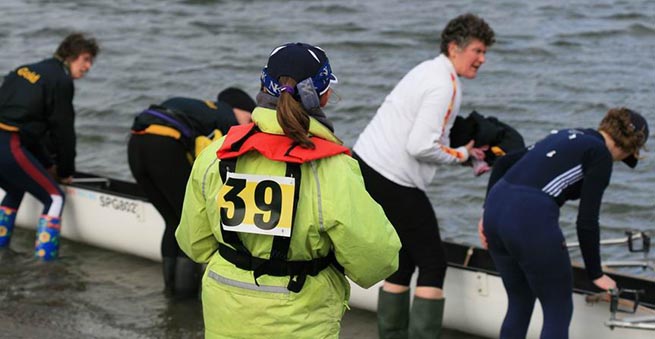
“It was heart-breaking when your work is wasted or can’t even begin” added Lesley, when I asked her about the disruptive effect COVID-19 had on the races. As many will remember, in 2020, the Women’s Head had to be cancelled at 6am on the morning of the race because of stream conditions. Two weeks later, the Head of the River race was one of the first casualties of lockdown. In both cases, all of the groundwork had already been laid, of course,
Phase 3: Great never stops
You’d think the entries secretaries would have earned themselves a break come race day, but rowing events are often bootstrapped affairs and Lesley and Bryony are invariably pulled into other tasks. “It can be anything and everything from supporting the timing team to arguably the most important job – guarding the bacon sandwiches,” laughed Lesley.
On the day, the entries secretaries are kept busy relaying information about late scratchings to the timekeepers and marshals. They also help crews resolve last minute substitutions with quick checks of British Rowing membership. “We also have to keep a close eye on crews after the event, to ensure the winners are who they say they are and were definitely eligible for that category” said Bryony.
Staying connected
The only – and arguably biggest – question that remains is what motivates people like Lesley and Bryony to undertake such a workload on a voluntary basis. Both entries secretaries joined the rowing world as athletes during university. Lesley learned to row at Durham, winning WEHORR in 1992, which for her was the highlight of her racing career. “I didn’t want to lose the team friendship that rowing so beautifully supplies when retiring from the competitive side of the sport,” she explained. “I had also experienced huge benefit from rowing, and I wanted to give back to the community”. When WEHORR began to gain momentum, she involved herself, first writing the minutes for meetings before becoming entries secretary. “The role keeps me involved with the heart of the sport and updated on all of the latest changes and narratives that unfold through a season” she added.
For Bryony, Sheffield University provided the opportunity to take her first strokes. She enjoyed great success, culminating in silverware representing Wales at the Home Counties International Regatta. Endometriosis put an end to training but, once again, the sport stayed with her, and she found herself seeking a way to stay involved. “I suppose this was my way of maintaining my role in the community” she summarised.
Both women work to deliver the role of entries secretary alongside family life and day jobs, an incredible feat that often does not get the acclaim it deserves. “It would be great if more people could consider giving back to the events,” said Bryony. “There is always a job someone can do; any support makes the events easier and more enjoyable for everyone. Don’t be afraid to come forward”. Lesley added that any volunteer should “be ready to give up your own time,” and to “be patient”.
How to make entries secretaries happy: tips for competitors
Even if you don’t have time to dedicate to take on a role like this, you can help those who do by following their instructions when you take part in these events. Also, at smaller competitions, where entries secretaries are often handing out the numbers in a clubhouse, consider taking a few moments to chat to them (in sight of bacon sandwiches or otherwise) and let them know how much you appreciate their hard wirk. A quick email or social media shout out afterwards is good too. They will really value thanks for a job well done.
In conclusion, while those who work the hardest often don’t get the satisfaction of lifting a trophy after the race, there’s so much more to be gained from rowing than just winning. So if you’re interested in taking on the role, get in touch with local or national events – you’re likely to be welcomed with open arms. And don’tr forget that on top of the rewards that Lesley and Bryony describe, significant volunteer experience like this is always a useful thing to have on your CV.
Photos: Dan Beaumont


